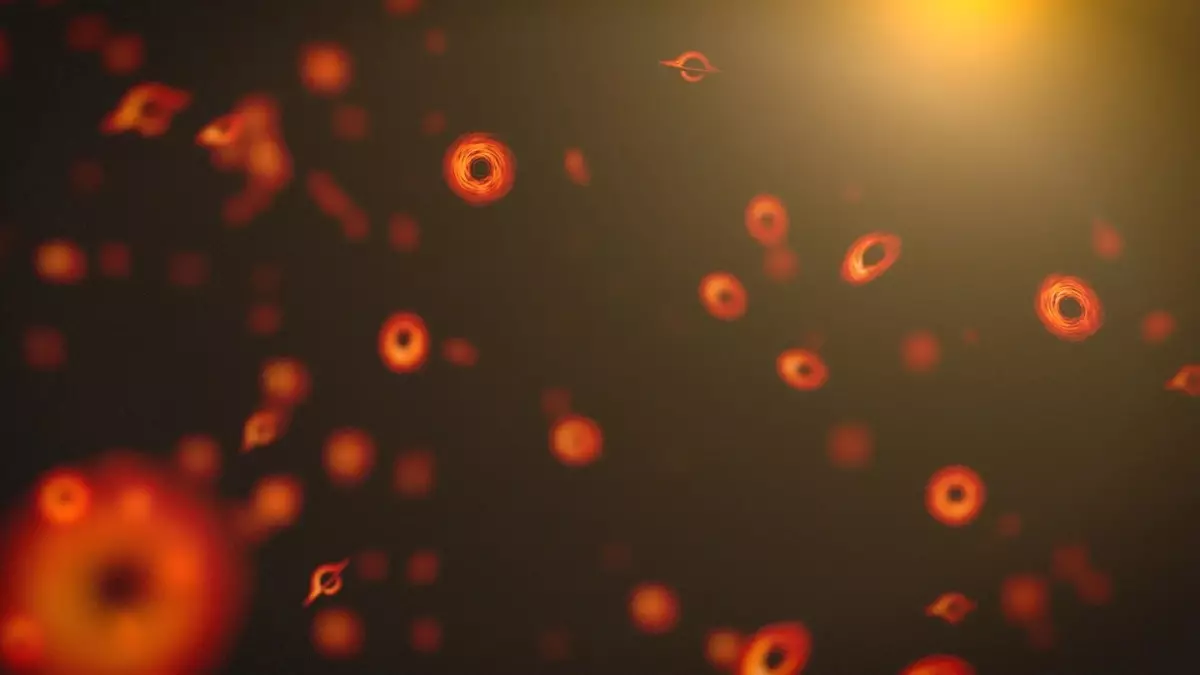Recent research published in the journal *Physical Review D* has stirred interest in the scientific community by introducing the theory that primordial black holes may exist within the solar system. Unlike conventional black holes that arise from the remnants of massive stars, primordial black holes are theorized to have formed soon after the Big Bang, originating from dense regions of matter collapsing under intense gravitational forces. This groundbreaking idea suggests that these microscopic bodies, weighing as much as asteroids yet possessing dimensions akin to a hydrogen atom, could offer new insights into dark matter—the elusive substance that constitutes approximately 85% of the universe’s mass.
The core premise of these studies revolves around how primordial black holes could influence the trajectories of planets and satellites. One of the researchers, Dr. Sarah Geller, a cosmologist from the University of California, Santa Cruz, indicated that subtle alterations in a planet’s orbit around the Sun could be a consequence of the gravitational effects exerted by these miniature black holes. Her team is embarking on an ambitious modeling project to simulate the solar system’s dynamics, integrating the potential presence of these black holes into their calculations. This research holds profound implications for our understanding of celestial mechanics and the forces at play in the cosmos.
Efforts to confirm the existence of primordial black holes are also gaining traction through innovative detection methods. Dr. Sébastien Clesse of Université Libre de Bruxelles, in collaboration with Dr. Bruno Bertrand from the Royal Observatory of Belgium, is advocating for a technique that analyzes satellite movement. Their hypothesis suggests that the gravitational influence of a small black hole could lead to minute but measurable changes in the altitude of satellites. By utilizing existing probes, researchers could potentially uncover disturbances in orbital patterns that signal the presence of these enigmatic objects. This approach is particularly attractive as it capitalizes on contemporary technology to explore an age-old scientific mystery.
However, the journey toward confirming the existence of primordial black holes is fraught with challenges and skepticism. Dr. Andreas Burkert from Ludwig-Maximilians-University Munich pointed out that other astrophysical phenomena, such as solar winds or interactions with asteroids, might produce similar gravitational anomalies. This highlights the need for rigorous testing and validation of findings; the road to detection is not straightforward and requires careful differentiation between various gravitational influences.
Despite the uncertainties, the exploration of primordial black holes could potentially unlock answers to some of the universe’s most persistent questions, particularly regarding the nature of dark matter. As researchers delve deeper into this line of inquiry, they not only expand the paradigm of astrophysical study but also rekindle the intrigue surrounding the enigmatic nature of black holes. With advanced modeling and innovative observational strategies, the journey to unravel the mysteries of our universe takes a fascinating turn, driven by the exhaustively curious nature of scientific inquiry.

Leave a Reply